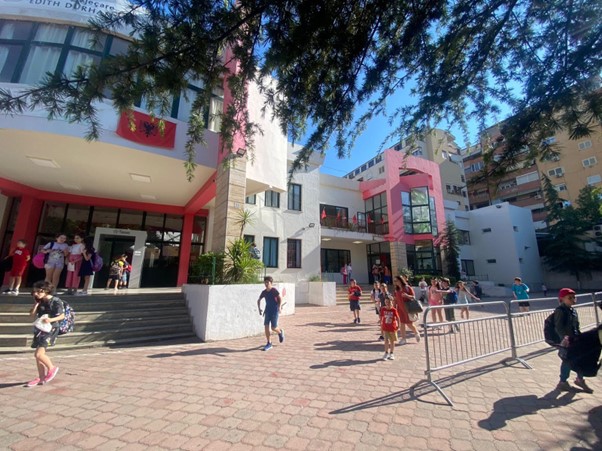The deadline set by the Constitutional Court for the Parliament to fill in the legal gap hindering the voting of emigrants in elections in Albania has expired. Upon the request of ‘Diaspora for Free Albania’ association, the Constitutional Court has decided that it is the duty of the Parliament to facilitate the constitutional right of the diaspora to vote. A year after this decision, it appears that the Parliament has neither any document nor a work plan for its enforcement. The Researcher, Afrim Krasniqi, explains the reasons why Albanian Diaspora ‘shakes up’ Albanian politics.
Jona Plumbi
‘The constitutional guarantee of the right to vote implies that it is the duty of the legislator to materialize and specify this right in appropriate laws.‘
This is how Decision 38 of 2022 by the Constitutional Court, which examined the request ‘Diaspora for Free Albania’ association regarding the infringement of the constitutional right to vote for emigrants in the recent parliamentary elections, is written. The Court also highlighted to the Parliament the unclear and unconstitutional manner of incorporating the right to vote for emigrants into the Electoral Code, thus infringing upon this constitutional right.
‘The constitutional right to vote for this category, due to the legal gap, has become a mere declarative provision, practically unenforceable, remaining at its core illusory.
– Constitutional Court Decision No 38/22
This completely undermines the majority’s assertion that they have fulfilled their duty, and now it is up to the Central Election Commission (CEC) to prepare the legislative package.
The Court considers that it is the responsibility of the Assembly to address the aforementioned legal gap within a timeframe, which, in this specific case, is deemed to be determined within one year from the entry into force of this decision.’ – As specified by the Constitutional Court decision.
One year after this decision, there is no document or action plan from the Parliament for its enforcement. Afrim Krasniqi, a Researcher on electoral systems and Director of the Institute for Political Studies, assesses that the cause of this is the fall parliamentary crisis and the absence of political will.
‘This is a paradoxical situation where the Albanian Parliament, the highest representative institution, rejects and fails to implement the decisions of the Constitutional Court, which are binding for the institutions.‘ – Afrim Krasniqi

Krasniqi considers this as damage to the political culture, institutional behavior, and constitutional governance standards in Albania Krasniqi sees the electoral calculations of the major political parties as the reason for this lack of political will.
‘Parties are more interested in controlling voters within than in expanding representative democracy, representation possibilities, and access for Albanians living abroad to influence the political system,– argues Krasniqi, who emphasizes two main reasons why diaspora shakes up the old politics.
The first reason is statistical.
According to INSTAT in 2020 – the latest available statistics – Diaspora is calculated to be 1,684,135 individuals outside the territory of Albania. The population of Albania in 2020 was 2,845,955 residents. Therefore, in 2020, diaspora accounted for 37% of the total Albanian population. Considering the growing trend of the Albanian diaspora, this percentage is expected to be even higher now.


According to Krasniqi, the second reason is related to the qualities of this part of the population.
‘In circumstances where the country is facing a crisis of trust, and political parties within the country have a low level of public support, then new groups, political entities, or forces supported by the diaspora can bring about political change in Albania‘ and this, according to Krasniqi, is precisely why the parliament refused to include it in the schedule and rejected letting the structures define it as an obligation in the Parliament’s priority agenda.
Dr. Klodian Rado, a constitutionalist and legal expert of “Diaspora for Free Albania,” emphasizes that after the decision of the Constitutional Court, general elections without the diaspora vote in Albania would be unconstitutional and without any legal effect.
‘Respecting and implementing the decisions of the Constitutional Court is the foundation of a democratic and just state. Not executing the decision of a Court, especially the Highest Court, indicates that you have started to think that there should be no state. Such a signal should never come from the Parliament of Albania.’ – Dr. – Klodian Rado.

For the ‘Diaspora for Free Albania’ association, if the legal gap is not filled, the action will persist. ‘This action encompasses the full spectrum of potential civic responses, including: public pressure, informing international actors about this issue, using political instruments in the Parliament according to the Parliament’s Rules of Procedure, and resorting to legal means for the enforcement of the Constitutional Court’s decision.’
Ensuring Diaspora’s right to vote has been an early commitment of the Rama government. In 2017, the Head of the Government’s cabinet stated that 2017 elections would be the last ones in which Diaspora could not vote directly from their location. Given this promise and the fact that the Parliament has not yet fulfilled its constitutional obligation to enable Diaspora’s vote, we consider the promise as Unfulfilled.










